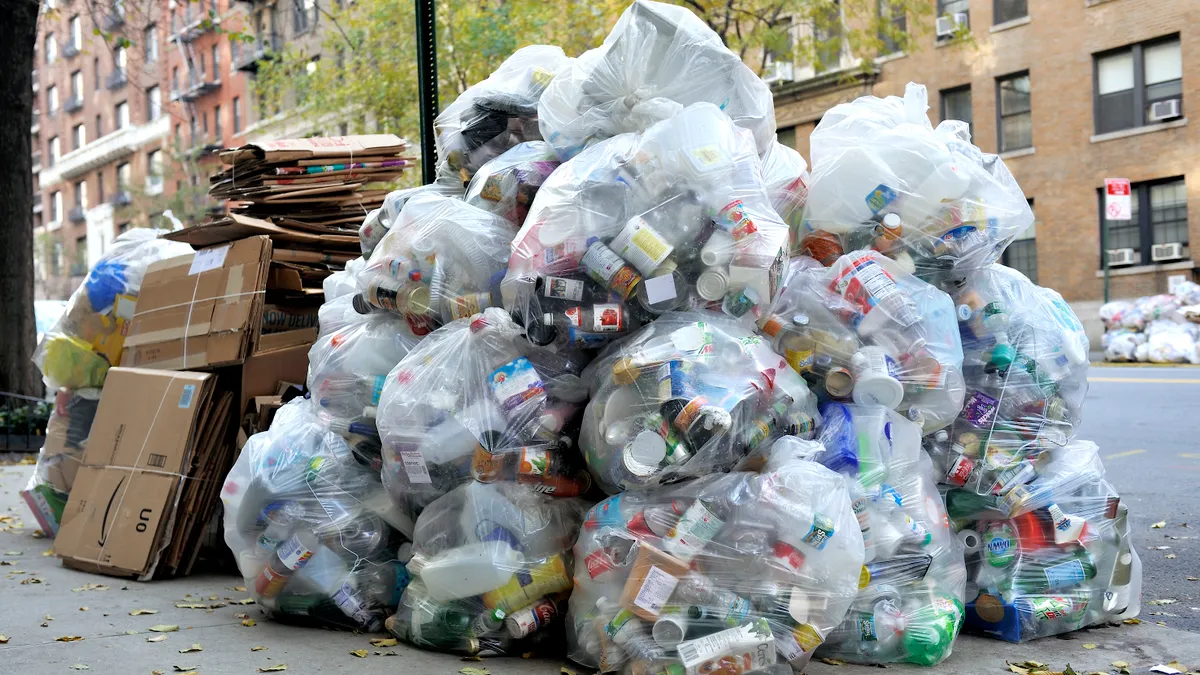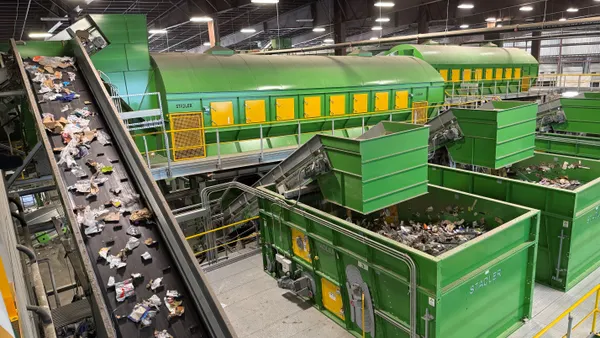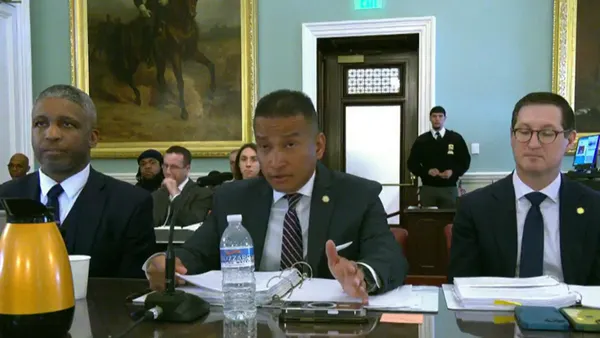Dive Brief:
- A new report from Waste Alert estimates that 19% of local government meetings dealt with solid waste or recycling issues in 2016.
- The estimate is based on analyzing 1,434 agendas and minutes from 752 city council, county commission, and solid waste committee meetings from Washington, Oregon, Idaho, Montana and Wyoming. Those states were selected because that was where Waste Alert's clients requested information on local activity.
- Finance, facilities, infrastructure and planning were among the most widely discussed topics. Contracts, franchises and regulatory issues were also common themes.
Dive Insight:
While some key elements of solid waste policy are decided at the federal or state levels, many decisions that affect the industry are made locally. Whether the issue at hand is as big as a citywide franchise system or as relatively small as plastic bag ordinances, the decisions of local regulators can have long-term consequences.
As described by Waste Alert in its report, the discussions and policies coming out of the more than 3,100 local governments and counties in the U.S. are part of a very complicated system: "Local regulators are under considerable pressure from incumbent haulers, competitors, as well as recycling and other advocates, to amend—sometimes significantly—solid waste and recycling ordinances. That pressure results in a wide variety of responses from local elected officials, ranging from deliberation to regulatory change."
The outcomes of these meetings can give smaller haulers an opportunity to grow their business, restrict markets for multinational operations or potentially change the playing field for all involved. Especially when it comes to infrastructure, these meetings can affect local waste transfer or processing options for years or decades. While big-name mergers and acquisitions often get more attention, some of these decisions by local government officials can sometimes be just as important if not more so for the regional markets that they regulate.















